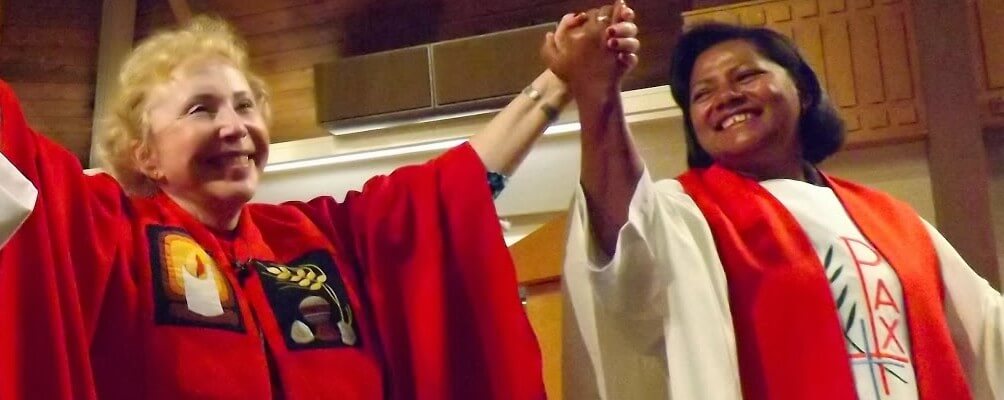
A priest (masculine) or priestess (feminine) is a person authorized to perform the sacred rituals of a religion, especially as a mediatory agent between humans and one or more deities. They also have the authority or power to administer religious rites; in particular, rites of sacrifice to, and propitiation of, a deity or deities. Their office or position is the priesthood, a term which also may apply to such persons collectively.
Priests and priestesses have existed since the earliest of times (see Proto-indo-European trifunctional hypothesis) and in the simplest societies, most likely as a result of agricultural surplus and consequent social stratification. Priests exist in many religions today, such as all or some branches of Judaism, Christianity, Shintoism, Hinduism. They are generally regarded as having positive contact with the deity or deities of the religion to which they subscribe, often interpreting the meaning of events and performing the rituals of the religion.
The question of which religions have a “priest” depends on how the titles of leaders are used or translated into English. In some cases, leaders are more like those that other believers will often turn for advice on spiritual matters, and less of a “person authorized to perform the sacred rituals” For example, clergy in Roman Catholicism and Orthodox Christianity are priests, but in Protestant Christianity they are typically minister and pastor.
In many religions, being a priest or priestess is a full-time position, ruling out any other career. In other cases it is a part-time role. For example in the early history of Iceland the chieftains were titled goði, a word meaning “priest”. As seen in the saga of Hrafnkell Freysgoði, however, being a priest consisted merely of offering periodic sacrifices to the Norse gods and goddesses; it was not a full-time role, nor did it involve ordination.
In some religions, being a priest or priestess is by human election or human choice. In Judaism the priesthood is inherited in familial lines.
